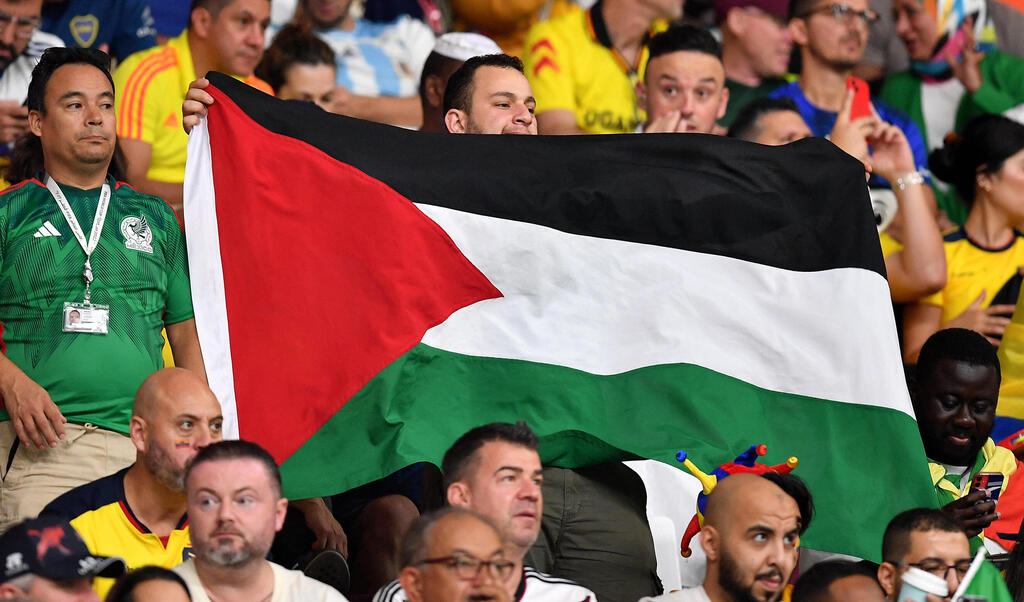The hostility displayed towards Israeli journalists covering the World Cup in Qatar is highlighting Israel's extremely negative image in the eyes of the peoples of the region, a reality that we often refuse to acknowledge.
There has been a consistent, years-long effort to delegitimize Israel in Middle Eastern media outlets and online platforms, while our own press is preoccupied with internal affairs, leaving the public under the illusion that all is well.
Israelis are unaware of news, events and general perceptions in neighboring countries, caused often by the lack of a common language and a general sense of indifference.
This willingness to remain blind to the truth, will occasionally clash with reality, but in the inter-governmental arena, such willful ignorance of Israel's image comes at a cost.
The fight for legitimacy and the perception of Israel in the world, are cornerstones of our national security and are in our strategic interest, not only in times of war, but in general.
Successive Israeli government have neglected their responsibility to convey the right messaging and have failed in presenting the Israeli narrative of the Palestinian conflict to the region. There were always excuses, including lack of budget and coordination. But often, the cause was political considerations – favoring the domestic messaging vis-à-vis the conflict – as well as a failure to agree on an effective strategy.
It is true that in times of military conflict, the Prime Minister's Office, the IDF and other security services were able to cooperate in resolving specific crises, but those are only piecemeal efforts that were quickly neglected once the conflict was over.
Numerous reports issued by the State Comptroller and the Knesset Center for Information, have pointed out these failings, but none were ever addressed and corrected, and no one in leadership has been willing to tackle the problem.
It is time to assign a messaging czar, who can unite all forces from all aspects of government and security to formulate a clear messaging policy that can be put in place and followed.
Like an orchestra conductor, such a person must find those with a media savviness and a knowledge of languages – especially Arabic and Farsi. Then, dispatch them to social media platforms and international television studios where they could relay Israel's point of view in a language understood by viewers and without the mediation of a hostile press.
An improved messaging effort must provide the best service to, and embrace the foreign media covering Israel, rather than allowing those who are hostile to Israel to control the narrative.
3 View gallery


Palestinian football fans wave national and Qatari flags as they watch a live broadcast of the 2022 World Cup opening match between Qatar and Ecuador
(Mahmud Hams/AFP)
The IDF Spokesperson's Unit must limit itself to military matters, unlike the practice used now where they present people in uniform to convey political messaging. After all, Israel is not a military state, and must not be depicted as one.
A professional, who has no clear political affiliation must speak for the nation, a job that has been mistakenly put in the hands of the prime minister's media adviser.
In Israel's polarized political sphere and with government's changing hands, messaging has been inconsistent and oblivious to all but the interests of those in power. The messaging effort should enjoy the authority, budget and gravitas of a government ministry and hold all spokespeople for the government under one roof.
The professionals in place must identify Israel's national interests, map target audiences and select the proper platforms and presenters to relay precise messaging, while defining clear measures of success.
Will such a ministry magically solve all of Israel's public relations problems? Probably not. But it is our duty to exhaust any avenue, which might improve our image and bolster our legitimacy in the eyes of the peoples around us.



